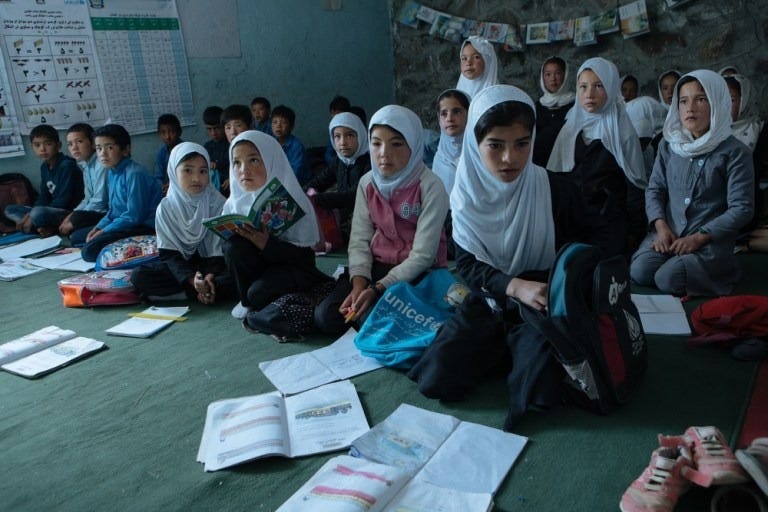What feminists owe each other
Sophie Lewis on calling out fascists, a plea from the Former Minister of Women's Affairs in Afghanistan, and more
“We cannot assume,” the scholar Sophie Lewis argues, “that feminism and fascism are automatic antagonists.” While we might wish to arrange all liberatory figures on one side and all exclusionary elitists on the other, it’s vital we reckon with the truth: Sadly, some feminists are fascists.
This week at Public Seminar, Lewis joins Natasha Lennard for a conversation about the capacious nature of feminist movement, including how to know when to fight our former comrades and when to talk them down. Meanwhile, in an excerpt from her new book Enemy Feminisms, Lewis expands on what it means to be “a reluctant feminist killjoy.”
Sonali Chakravarti reviews the 2024 Brazilian film I’m Still Here and reminds us that fighting a fascist regime doesn’t mean abandoning the fullness of life. “Celebrating birthdays, playing soccer, and laughing are also part of the reality of the present.”
And Sima Samar explores how the Taliban’s recent edicts against women reinforce a gender apartheid that is everyone’s problem.
In I’m Still Here, a Mother Refuses to Let a Dictatorship Rewrite Reality
Sonali Chakravarti
Put on earrings. Go out for ice cream. Swim. Expose the conditions of torture. For Eunice Paiva, the protagonist of 2024 Brazilian film I’m Still Here, the fight against dictatorship has a rhythm. After being interrogated about her association with communists and terrorists, she must now try to find out where her husband is detained and work with a lawyer to get him out. She also has five children, whose ages range from 7 to 17, to care for. Her story and the delicate balance she maintains between these responsibilities has lessons for those of us unsure about how to act and feel amidst political uncertainty.
Yes, Some of Our Enemies Are Feminists
Natasha Lennard and Sophie Lewis
Sophie Lewis: Insisting on our impurity and imperfection means we are rarely, regardless of what people say about “cancel culture,” going straight from comradeship to enmity. People are asking themselves: Okay, is the person in question standing behind material policy on this question, yes or no? Internal friction becomes enmity—and ought to!—when discursive violence is supplemented by practical reactionary activism.
The Taliban’s Systematic Erasure of Women Is Crippling Afghan Society
Sima Samar
After the Taliban banned girls and women from studying beyond the sixth grade, in 2021, one avenue for education remained open: medical institutions, where they could train to become nurses, midwives, and pharmacists. However, in December 2024, Taliban officials announced that female students would now be barred from attending medical institutions as well—“until further notice.” This move effectively shut down any opportunity for women to pursue higher education and the training of female health care workers.
Enemy Feminisms
Sophie Lewis
Let’s be brave and swallow our bitter medicine. Feminists across the political spectrum have taken pains to define their troops as chaste and untainted by lust (especially interracial lust); not to mention maternal, i.e., pure, straight, removed from the realm of productive work; and “natural,” that is, not artificial, not “femme,” neither surgically nor chemically enhanced. Black feminisms have a better track record, but of course some Black feminists too have been thoroughly ableist in this way, or whorephobic, or anticommunist. All in all, a great deal of feminisms have imagined their central subject as hardworking, nondisabled, healthful, and prosthesis-free—these being the unspoken complements to a womanhood that is life-giving (or at least pro-family), economically independent (or at least aspiring), nonviolent (or at least law-abiding), and “self-respecting” (not a body modifier or a bottom).







